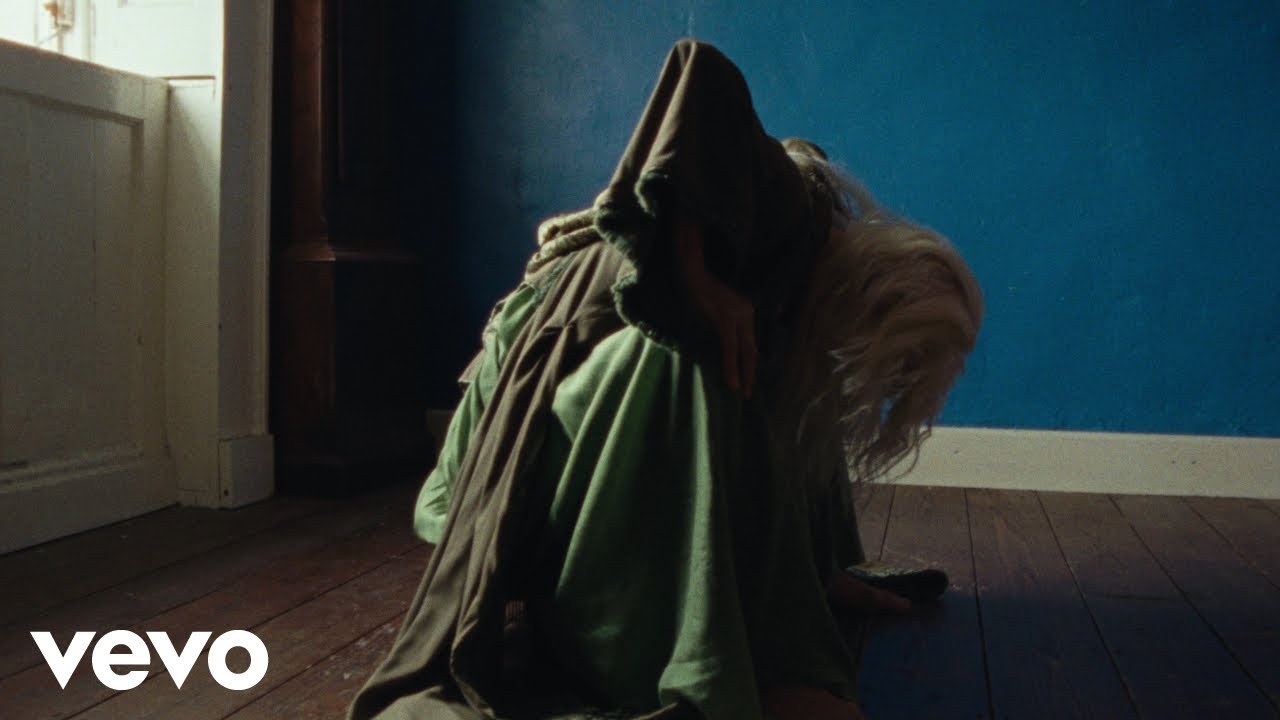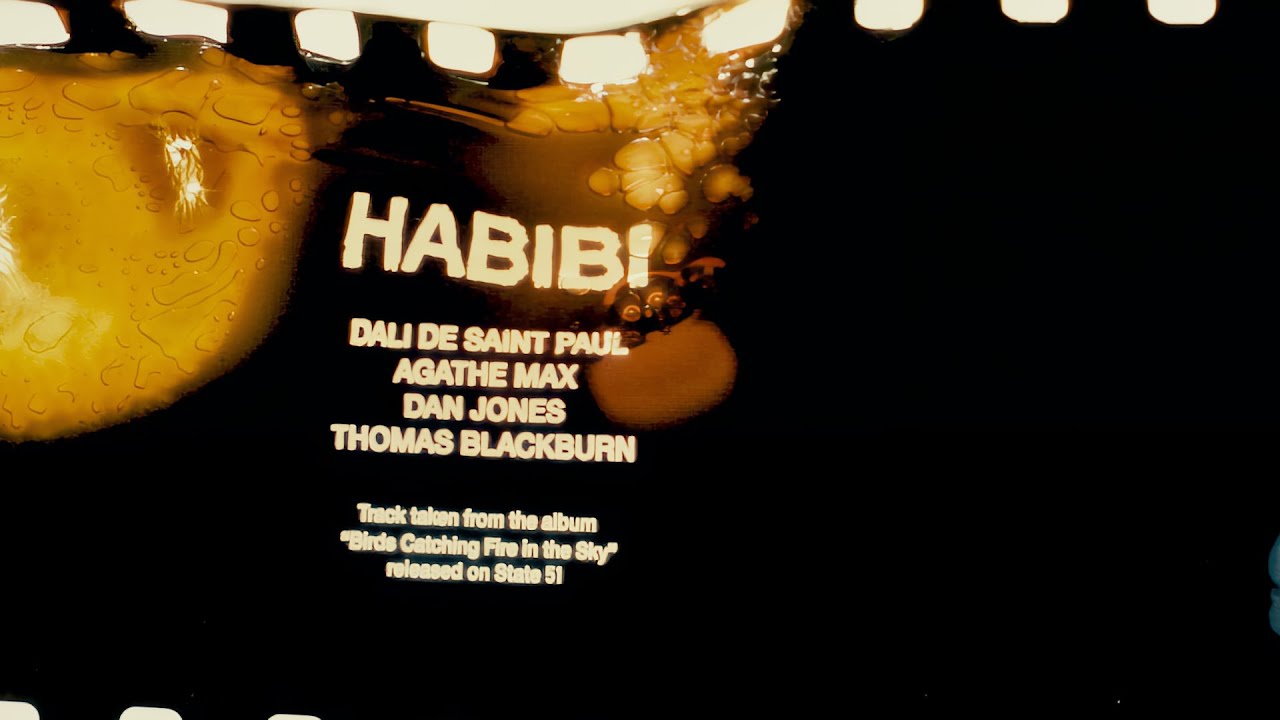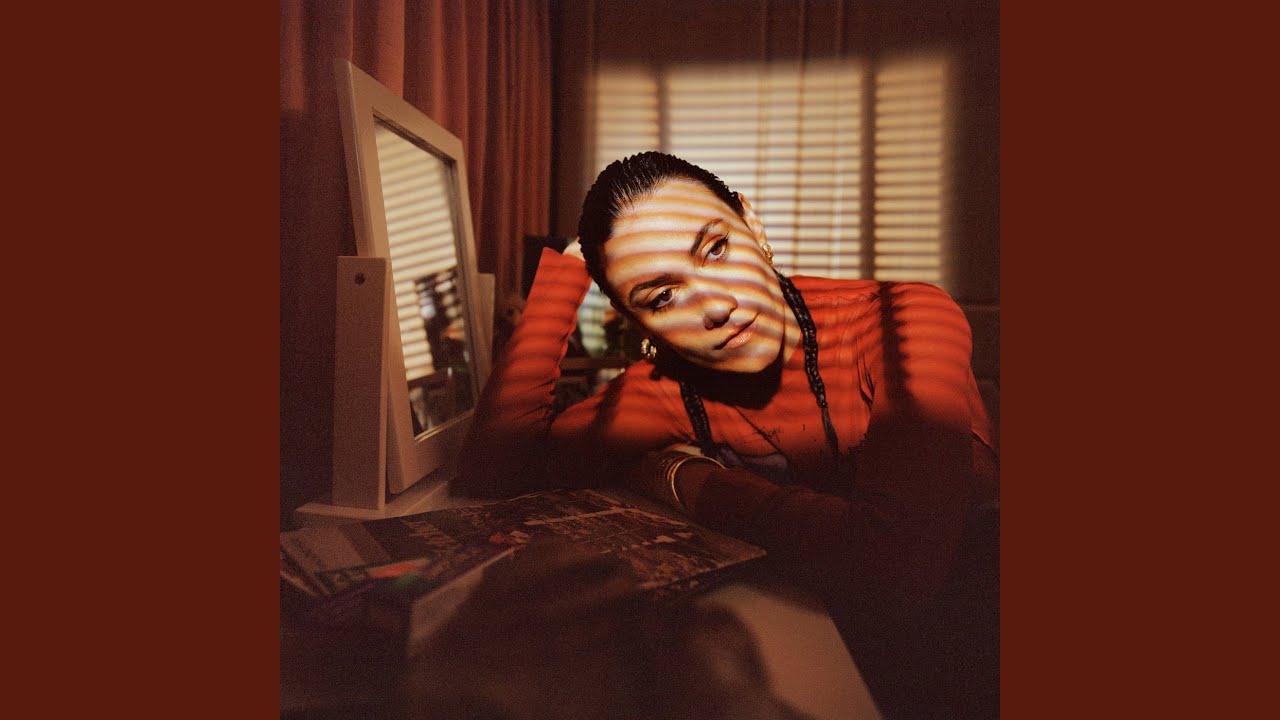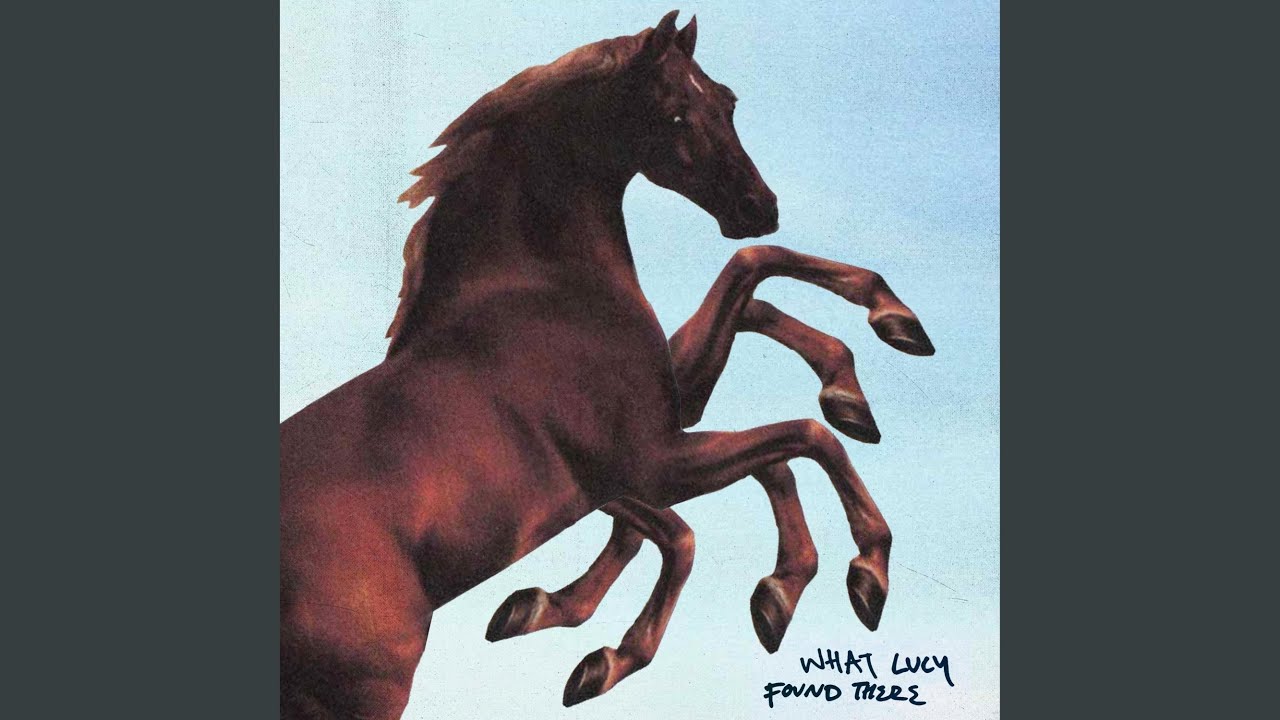I was recently asked to submit my ballot for tQ’s end of year charts by the end of October – the dreaded email that, as the saying goes, seems to arrive earlier every year. So as not to interfere too much with early December’s listageddon, this will therefore be the final monthly music round-up of 2023.
That’s not to say, of course, that November’s releases will be ignored entirely. For this month’s list we’ve given our faithful staffers the remit to sneak in their favourite forthcoming releases too. It means, in my opinion, that this is one of the strongest sets of music we’ve rounded up yet, chock full of proper, genuine masterpieces.
All of these picks, as well as all the other excellent music we’ve covered at tQ this month, will also be compiled into an hours-long playlist (also a bumper edition covering two months rather than one) exclusive to our subscribers. In addition, subscribers can enjoy exclusive music from some of the world’s most forward-thinking artists, regular deep-dive essays, a monthly podcast, specially-curated ‘Organic Intelligence’ guides to under the radar international sub-genres, and more.
To sign up for all those benefits, and to help us keep bringing you the kind of music you’re about to read about below, you can click here. And read on for the best of the best from September 2023.
Patrick Clarke
ALBUMS
ØXN – CYRM
(Claddagh)
One of the best things about the extraordinary wave of folk music coming out of Ireland at the moment is the way in which it embraces influence from beyond the form’s usual spectrum, letting drones and distortion warp and stretch its oft-trodden narratives back into the weirder climes from whence they came as if spaghettifying them with a sonic black hole. The debut album from ØXN, a project of Lankum’s Radie Peat, solo musician Katie Kim, and John ‘Spud’ Murphy and Eleanor Myler of the motorik Percolator, is perhaps the best example yet of this process. The tunes – which range from longstanding murder ballad ‘Cruel Mother’ to Scott Walker’s 1995 masterpiece ‘Farmer In The City’ – are bathed in a deep instrumental gloom that overwhelms everything it touches. Everything aside from Peat and Kim’s vocals, that is, the former rising above the fray with starkness, the latter weaving its way through the darkness with transfixing subtlety. It’s a record of rare power and heft, emerging at the crest of a wider Irish wave that should be cherished to the highest possible degree.
Patrick Clarke
Gazelle Twin – Black Dog
(Invada)
You are drawn to anticipate Bernholz’s voice, which you spend much of your listening experience waiting to emerge and break through the drones. But it’s the gaps between these moments which make it breathtaking. Bernholz projects her voice in a way that makes it sound like it’s not attached to a physical body – much like Diamanda Galas’. Her sonically altered, sometimes low, sometimes high voice sits on top of each track like a disembodied narrator. It disarmingly cuts through her languorous synth drones, with you latching onto her every word in case it provides some sense of clarity to the strange harmonic resonances. She dangles tantalisingly few clues however. While Bernholz has used her voice to similar effect throughout her work as Gazelle Twin, it’s at its most commanding here.
Lottie Brazier – read the full review here
Thinking Fellers Union Local 282 – These Things Remain Unassigned
(Bulbous Monocle)
Bulbous Monocle’s third release of Thinking Fellers Union Local 282 material gathers together remastered tracks from singles, compilations, outtakes and previously unreleased gems across a double LP. There are covers of The Residents, Ennio Morricone, Krzysztof Komeda, fellow San Francisco-based industrial bluegrass–experimental–Noise collective Caroliner Rainbow, The Shaggs and an amusing reworking of John Cale and John Tudor piece. Twenty tracks range from the relatively accessible Sonic Youth-esque ‘2x4s’ and the gently goofy ‘Strange Mail’ with its twanging western guitar and quaintly charming Optigan keyboard, to more bizarre tape manipulation experiments like ‘The Kids Are in the Mud’ and the brilliantly propulsive banjo electro of ‘Shiny Pig’. Listeners who are new to these guys may be initially confused by a band who can sound like Yo La Tengo or Pavement at times and The Residents or Negativland at others, but that’s all part of their ineffable appeal. TFUL282 remain one of the great weird American guitar bands of all time, yet if they could only ‘bring the weird’, they wouldn’t be as well remembered as they are. The first three tracks are idiosyncratic but wonderfully hummable bits of wonky pop Americana, and the Ennio Morricone medley is thrillingly epic, but the weird bits that initially make you think “WTF?” will also get under your skin if you let them.
Sean Kitching
Inward Circles – Before We Lie Down In Darkness
(Corbel Stone)
There’s no two ways about it: this is a ghostly album. Rolling waves of sound ring out through misty white noise like foghorns, hanging sluggishly then fading, as if they only have the capacity for two or three notes before collapsing under the strain. The frequent use of glissando suggests a kind of grand, swooning emotional release – it’s one of the reasons why Before We Lie Down in Darknesse seems forever sinking or rising. In a revealing Baker’s Dozen interview with The Quietus, Skelton praised the “morphing, changing, shifting sonorities” of Phuture’s ‘Acid Trax’, and this fondness is evident in the “shifting” quality of Before We Lie Down in Darknesse. It is, I think crucially, not a static record; granular textures, overtones, and hidden melodies are always moving beneath those great, empty-seeming swathes of noise. It’s not the ambient music that suggests still, quiet landscapes, but ambient music that evokes the restless march of time, nature’s (inevitable?) reclamation of human spaces, and Earth’s inner machinery. Insistent crackles on ‘They Closed Their Eyes as Parts Which First Die’ recall both heavy rain on tarpaulin and distant gunfire. You can almost feel the toneless bluster and billow of a squall underneath ‘That the Spirit of One Body Passed Into Another’. (A decent set of headphones will reveal a knobbly topography beneath the fog).
Will Ainsley – read the full review here
John Francis Flynn – Look Over The Wall, See The Sky
(River Lea)
After multiple listens to this singular and brilliant album, a bigger picture starts to form. The shards of broken images might actually be a mosaic. During ‘Mole In The Ground’, the protagonist complains, “I’ve been in The Bend so long”, referring, as Harry Smith (but not Bascom Lamar Lunsford) realised, to the state penitentiary. The macabre warning hanging over the Waterford County Jail. The blue skies spotted by the singer of ‘The Lag Song’. McColl’s idea that Salford is like a prison. Flynn says that there is an “overarching theme of Irish identity, both how it is perceived and how it is lived”. Not all of the songs are a metaphor for feeling trapped and pushing back but they all challenge “a perspective of what Ireland is or is perceived to be”.
John Doran – read an interview here
Kevin Richard Martin – Black
(Intercranial)
Amy Winehouse remains the only celebrity death I’ve ever been upset by. I thought (and still do) that she possessed an amazing voice but wasn’t familiar with much of her work outside of some singles. The initial impulse of distress may have been narcissistic projection, but still the resounding anger and sadness were true. How could anyone with that many people around her, clearly in so much pain, be essentially left to die? A carousel of terrifying withdrawal then punishing retoxification, each downward turn sinking deeper into the kindling, each upward turn starting from a terrifyingly vulnerable point of ethanol naivety. Kevin Richard Martin has been carving out another parallel music voice to The Bug etc. over the last few years, recording introspective music under his own name, with highlights including his masterful and serious rescore Return To Solaris, and Sirens, which addresses the traumatic birth of his son, who was severely ill during his first month. Martin himself wasn’t a fan of Winehouse per se, but on Black he recalls his initial shock at her death, and a later realisation of the true extent of her artistic worth triggered by watching Asif Kapadia’s documentary Amy, plus subsequent immersion in her work. While the hallmarks of these KRM releases are present and correct – immersive bass, luxurious delay, expensive reverb – anyone making the assumption that this is “just” ambient music would be wrong. Black is clearly a response to Winehouse’s music itself (including the way her untimely death has changed how we hear her back catalogue); and elements of funk, ska, hip hop and dub push many of these tracks into the arena of soul. But this is soul music in the sense that many other British outliers such as Massive Attack, Burial and Portishead have also made the kind of soul music that embraces Black American artistry, while contemplating uncomfortable existential questions dredged up by also considering the deeper etymology of the word.
John Doran
Helena Deland – Goodnight Summerland
(Chivi Chivi)
Let Goodnight Summerland be the last album you play at night, when everyone’s asleep and your whole body is fried. Let it be an album to toast marshmallows to on an open fire, an album to listen to wearing your thickest, chunkiest jumper with both hands clasped around a steaming hot drink. This is a record of such gossamer fragility, such tenderness, that you will want to hold onto it gently, like a freshly laid egg. This second solo album by the Canadian singer-songwriter and occasional JPEGMafia’ collaborator offers a suite of eleven gentle, folk-y songs, several of which wouldn’t sound out of place on an old Topic Records sampler. The whole thing is like a little sunbeam glinting on the crests of tiny waves and I am already a little bit addicted to it. Robert Barry
Lost Girls – Selvutsletter
(Smalltown Supersound)
I’ve never been suckered in by perfectionism. Most of the time, studio sheen is a total mood killer. Thousand-track, cocaine-fueled polish is for hi-fi shops and divorced dads. When every minute detail on an album sounds laboured over / over-considered, that thing isn’t rich with detail, buddy – it’s dead as a doornail. There’s a liveliness to immediacy that’s hard to beat with studio precision. Or with perfection, in general. Would you rather a pristine, crystalline take that’s technically brilliant; or one that’s technically somewhat flawed, but bloody and soaked in life? I know which one I’d choose, and I’m pretty sure that Jenny Hval and Håvard Volden are on the same page. About a minute-fifteen into ‘Timed Intervals’, the opener of the duo’s second Lost Girls LP, Selvutsletter, Hval absolutely belts out the song’s titular phrase, hucks it into orbit from the back of her throat, and holds it, holds it, holds it until her voice goes hoarse, craggy and rough, before softening as she lingers on intervals for a couple of seconds. It’s gut-punch stuff.
Bernie Brooks – read the full review here
Abstract Concrete – Abstract Concrete
(The state51 Conspiracy)
The prospect of Charles Hayward forming a new band, after deciding that the impetus to do more This Is Not This Heat shows was personally waning and his desire to record new material becoming too difficult to ignore, was enormously exciting when I first heard of it. That the new band was intended to be a continuation from the song-based but still experimental worlds he first conjured as a member of This Heat and then Camberwell Now, was enough to set up high expectations right from the start. Seeing the band come together, with Agathe Max on viola, Roberto Sassi on guitar, Yoni Silver on keyboards and bass clarinet and Otto Willberg, bass and double bass, at their first shows did not disappoint either and neither does their debut album. These are memorable songs with irresistible hooks, wonderfully heartfelt vocals expressing a deep empathy and humanity that nevertheless maintain a disarming sense of humour (as in their slightly groan-worthy but apt avant-garde musician joke of a name, Abstract Concrete), as well as thrilling, improvisation-derived passages during which the band take off into outer space. There are a lot of different elements in the mix here, prog, reggae, folk, loungecore, even a little disco, and perhaps some listeners may initially feel a little inclined towards indigestion. The vision behind it all though is singular and persuasive, and a track like centrepiece ‘The Day The Earth Stood Still’ is surely capable of inducing simultaneous joy and melancholy in anyone who has ears to hear it and a heart to feel it with. That track performed live remains a thing of great beauty with an utterly beguiling vocal performance from Hayward. It sounds great here too, but anyone interested in Hayward’s past glories should do themselves a favour and go see them play as well as picking up this wonderful release.
Sean Kitching
Marta Del Grandi – Selva
(Fire)
With its minimalist synth arpeggios and questing mezzo-soprano, the first thing Selva, the new album from Italian-born Marta Del Grandi, reminds me of is one of those peculiar electronic art-song records of the early 80s, like David Rosenboom and Jacqueline Humbert’s Daytime Viewing or Paul DeMarinis and David Behrman’s She’s More Wild with Fern Friedman, Terri Hanlon, and Anne Klingensmith. If subsequent tracks then settle into more familiar singer-songwriter territory, arrangement-wise, the compositions are no less beguiling for it and the influence of a particular American experimental tradition is never far away: witness the staccato voices and squealing reeds on single ‘Snapdragon’ or the ASMR-y whispers and twitters that open the title track. Selva is an odd, uncertain, unstable album that nonetheless manages to pack in the earworms.
Robert Barry
Slauson Malone 1 – Excelsior
(Warp)
Excelsior is an album made up of varying sketches; a collection of personal essays that provide an insight into specific lived experiences. The title of the album itself is a reference to continuous growth, Slauson Malone 1 turning the lens on himself to allow a rare look into an ever-changing and mutating exploration of self. It’s purposely chaotic and skeletal in places, but when the disjointed pieces are viewed as one, you get an album that is a fascinating and hypnotic listen.
Arusa Qureshi – read the full review here
TRACKS
UKAEA – ‘HABIBI’
‘Habibi’ is the lead single from UKAEA’s second album, Birds Catching Fire In The Sky, and shows how modular donk livewire Dan Jones has further concentrated the essence of what he does: an organic/electronic response to the emotional and intellectual stresses of geopolitics in 2023, mixing various strains of hardcore, with deep, often long-running collaborations with musicians from across the world. In this instance an initial sample of an Indian raga has been atomised and reassembled until forming a cyber maqam, over which Agathe Max provides mournful violin and Dali de Saint Paul sings an anthem of liberation in the Moroccan dialect Darija, inspired by the feminist revolution in Iran, sparked by Mahsa Amini’s death in custody after refusing to wear the hijab.
John Doran
Co-Pilot – ‘Motosaka’
Taken from July’s debut album Rotate, and boosted this month with a standalone digital release and a dreamy new video, ‘Motosaka’ is far more than initially meets the eye. Into two-and-a-half minutes, the duo of Lenore Wheatley (International Teachers Of Pop, The Soundcarriers) and Jim Noir, condense a universe of psychedelic pop brilliance. Set to a lopsided Ryuichi Sakamoto sample, they add layer upon layer of texture until the whole thing sparkles.
Patrick Clarke
Nadine Shah – ‘Topless Mother’
Returning with a new album next year, a sonic document of what she calls "a period of unprecedented turbulence" in her personal life, Nadine Shah’s new single, inspired by a difficult relationship with a counsellor, is as magnificent as anything she’s ever released, simmering and moody verses launching into a glorious, darkly euphoric chorus.
Patrick Clarke
Liz Metta – ‘Batik’
‘Batik’ hits that dreamy sweet spot somewhere between The Sundays, the Drop Nineteens and the Cocteau Twins, with just enough of a vaporwave-y twist to the production to keep it sounding contemporary. If this had come out when I was a teenager I would have absolutely played the shit out of it and to be honest, even at 42, I probably still will.
Robert Barry
Man/Woman/Chainsaw – ‘What Lucy Found There’
Although it’s worth pointing out that most of their members having just turned 18, a song like ‘What Lucy Found There’ would be remarkable even if it came from a band with several times the experience of Man Woman Chainsaw. A swooning, shapeshifting, melodramatic earworm of a single that sets them a apart from London indie’s ever-crowded field.
Patrick Clarke










